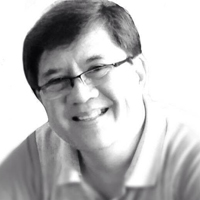
When you ridicule believers for orientating their lives according to what you deride as 2,000 year old documents that are no longer relevant for the day, then you take a swipe at Christianity, Judaism and Islam, as well as other religions that go by some kind of ancient scripture.
And that, perhaps, is just where you might be wrong because if people – not only in isolated pockets but in hundreds of thousands, if not millions – continue to take their bearings and find solace in these writings, then it must be so that, no matter how ancient, they appeal to something in the human spirit that far outlasts the passing of kings and presidents! (READ: Duterte blasts 'hypocritical' Catholic church)
Does our Constitution ordain a secular state? If by “secular” one means the thoroughgoing purge of religion from public life, the clear answer is that it does not. A Constitution that guarantees the citizen the free exercise of religion – including the right of organized religion to criticize the State and State agents on moral grounds – that forbids the establishment of one religion to the prejudice of others, and that proscribes the use of religious tests for the exercise of political and civil rights cannot be a secular state. Neither is a State secular when the fundamental law grants tax-exemptions to property used directly and exclusively for religious purposes. A State that makes religious courts – specifically Shari’ah courts – part of the judicial system of the land cannot be secular.
As for silencing religion in the arena of public discourse, that, too, misunderstands the nature of discourse, of collective will-formation and of consensus. Citizens of the Republic are Catholics, Protestants, Muslims and members of other faith-communities. A handful may be agnostics and atheists. When they discourse, the positions they take will many times arise from their most basic persuasions and their most comprehensive worldviews.
From these, you cannot exclude religion. Obviously they will frame their positions – at least those who can – in ways that will make their particular convictions intelligible to others who do not start from the same credal premises. But the point is that you cannot legislate nor exclude by autocratic decree what is inseparable from collective will-formation.
Priests are sinful
The sinfulness of priests and bishops is not in debate. They are sinful. We are. And the Church has, both universally and locally, publicly acknowledged its sinfulness and the transgressions of its leaders. There is no need to take this up in a public debate. All that the Church will say in true Scholastic fashion is “concedo…I concede,” but so must all who have been notoriously errant if not contumacious in their criminality! The Church has been ashamed of the sinfulness of its members and has begged for forgiveness for the waywardness of its leaders. It has never boasted of its failings!
When Super Typhoon Yolanda leveled most residences and buildings in Tacloban, did not the Catholic Church open its doors and host homeless families for days, if not weeks, when government was characteristically inutile and the loud-mouthed were nowhere to be found? Have not Catholic charities attended to indigents consistently and continually, even those who do not receive a share in the aspersions of government largesse? Are not thousands of Filipinos schooled at Catholic institutions, including lawyers who earn their degrees at Catholic colleges? Has not the world taken courage to be more merciful from the shimmering example of a simple man like Pope Francis who has won the following of millions without ever having been abrasive or provocative?
The Church will never claim these to her credit. But it will be well to remember those times we applauded the Church and her leaders whenever we are inclined to dismiss her as irrelevant! – Rappler.com
The author is Dean of the Graduate School of Law, San Beda College